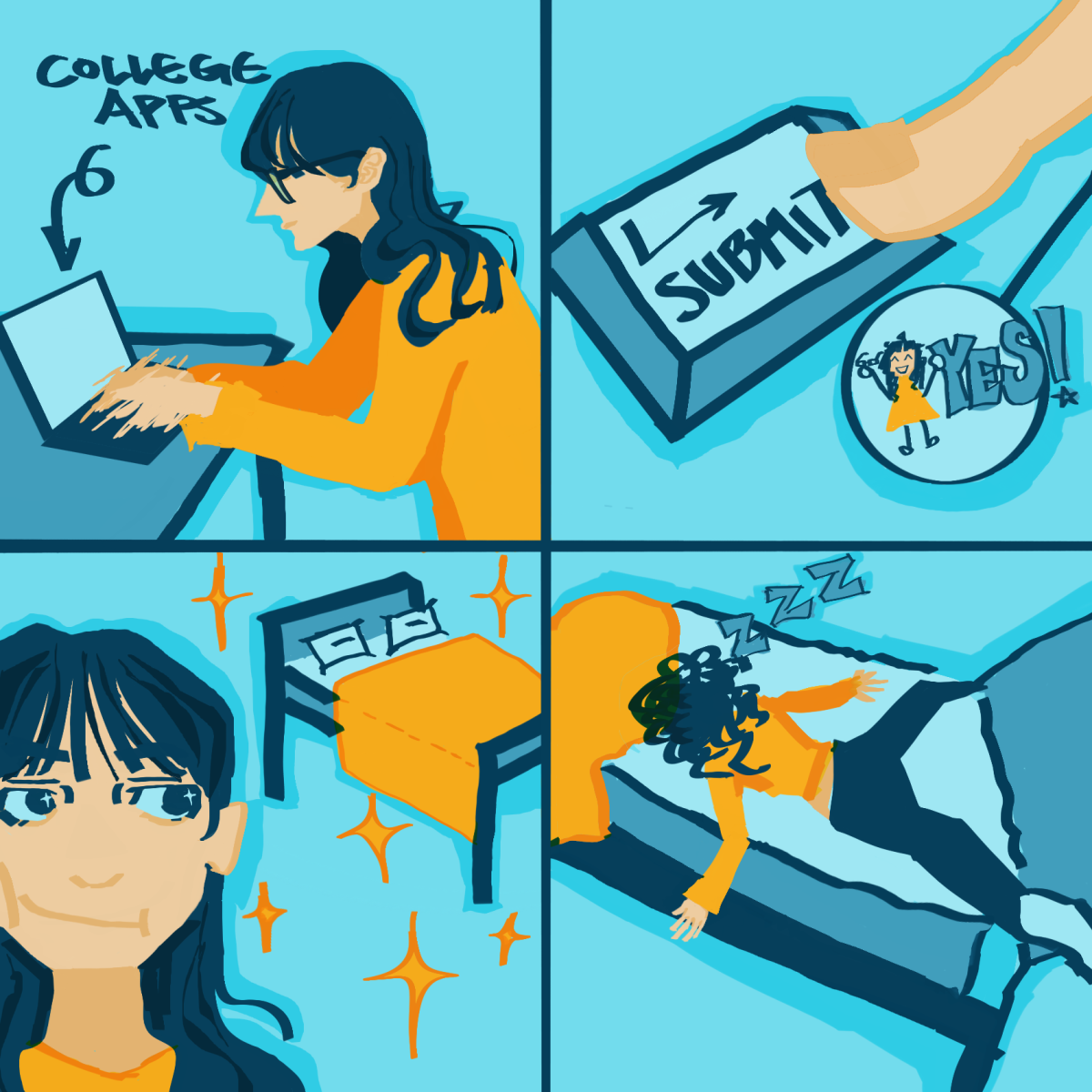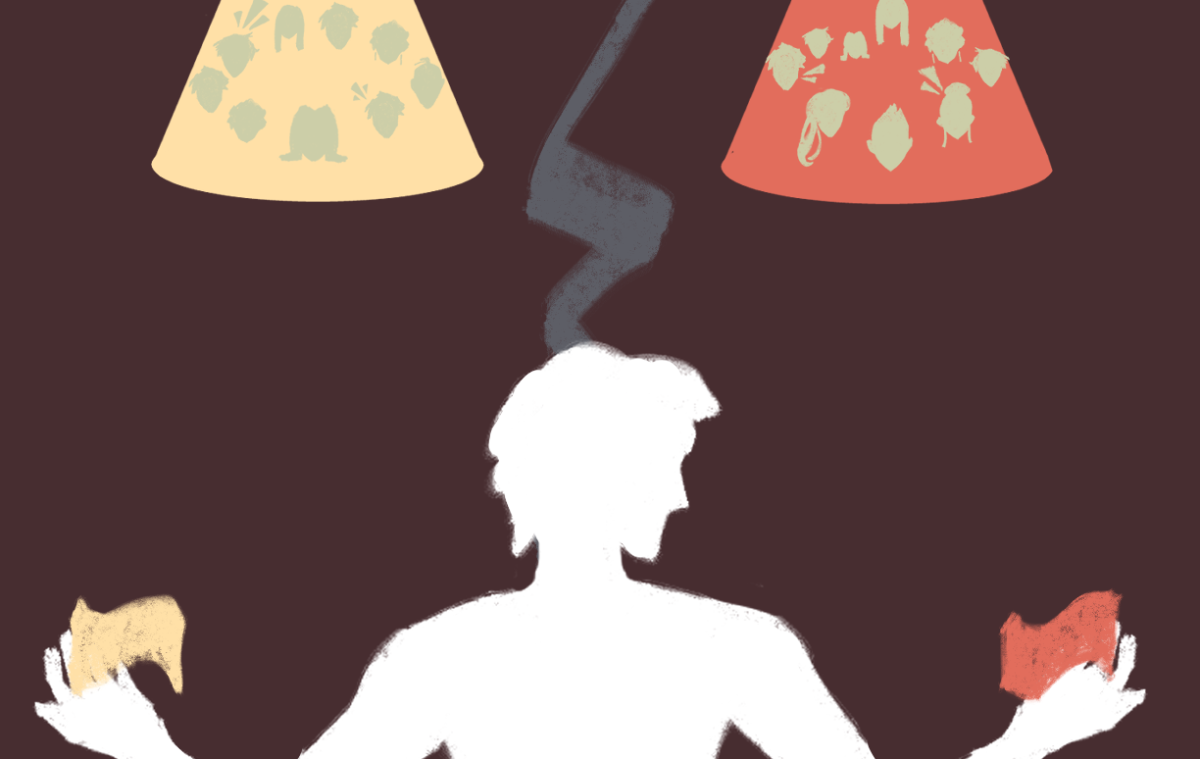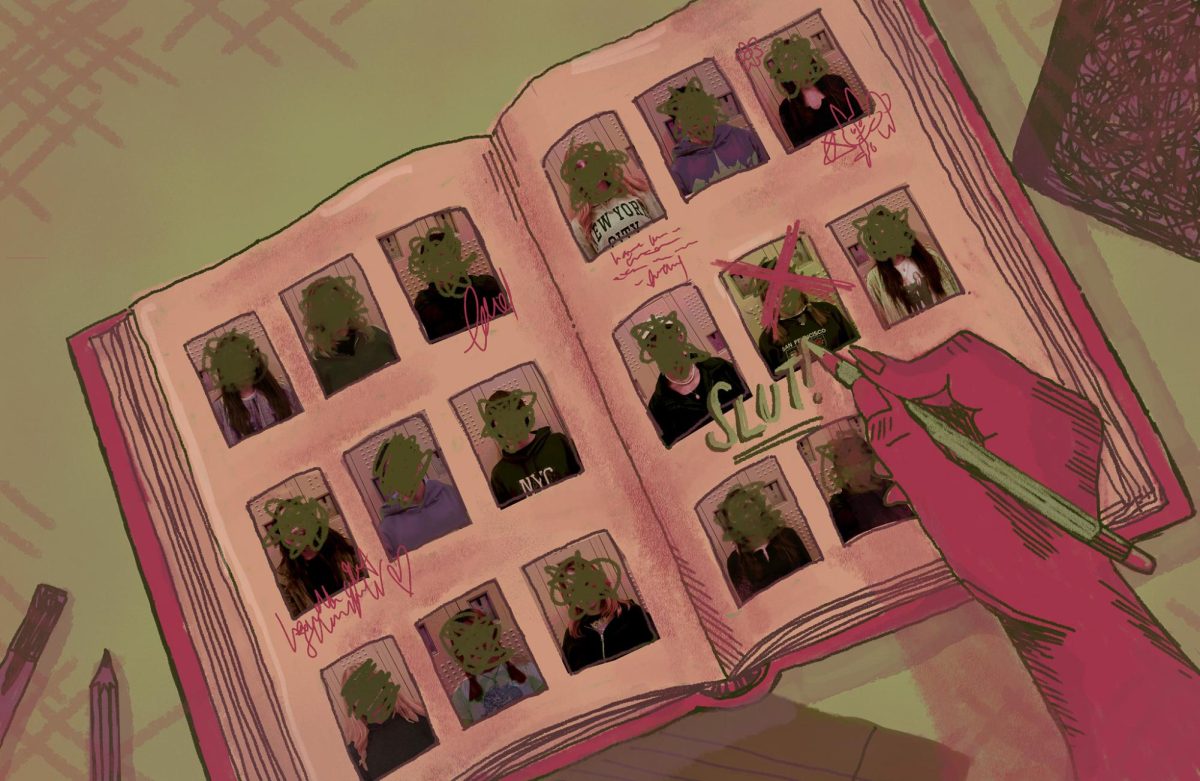Originally published on March 3, 2015
Do you have a crush you are just dying to share? Or do you have the sudden urge to anonymously confess to the world your secrets? Well, with a click of a button, you can.
There is a new trend of teens using Facebook confession pages as a tool of expression. From San Francisco to New York, this movement can be tracked across the country.
Lowell Confessions is a Facebook page run by three students that offers confidentiality and anonymity. Originally, the page was created for students to use as a safe place to vent about anything from stress to love.
The page was created for students to use as a safe place to vent about anything from stress to love.
Posters can share their thoughts by clicking on a Google Form link, typing out their confessions, and waiting for the page administrator to post them. Some people send their confessions to the Facebook page as messages, but most just use the form. The form does not ask for any form of identification, so all posters are untrackable.
The administrators of the Confessions would only be interviewed for this article on condition of anonymity, as they are anonymous on the Facebook page. We contacted the administrators through a direct Facebook message, and interviewed them in an anonymous chat room.
The administrators do not have a set schedule on when each administrator should post and do not have a system for choosing what gets posted. “We do not assign a specific type of post to one person or look for a specific type of post,” a student administrator said. “But one of us may tend to like to post funnier confessions, while another likes ones about crushes and romance. What we post, individually, is more of a reflection of our diverse personalities.”
On average, the administrators post around 60 percent of their submissions. The 40 percent that are not posted are spam or are deemed inappropriate by the student administration. According to a student administrator, the content cannot target someone specifically.
When Lowell Confessions was first launched in 2013, members of the District legal department contacted the administrators of Lowell Confessions and told them to shut it down. According to dean Ray Cordoba, they feared that the anonymity would encourage cyberbullying, posing a threat to students’ security and livelihoods. In response, the page administrators posted a question on Facebook asking whether people believed that Confessions actually posed this threat, to which the majority of the community replied no.
Since 2013, the tone of a significant portion of the posts has shifted from innocent crushes to more serious claims of depression and even some attempts of suicide. One poster decided to write about how they are afraid of remaining dependent on their parents for the rest of their lives. Due to their situation with their parents, this poster admitted to previously attempting suicide, and threatened to try again. Another confession talks about being lonely. The poster said that they do not have any adults or best friends there for them, making them wonder why they even came to Lowell.
Lowell Confessions is still a center for all students to get direct commentary and advice on their posts.
Another poster claimed that their father hit them with an object, and then went onto saying that the father had done this before. The poster said that they hate their father for abusing them, but that they hate themselves even more for being afraid.“Please help me,” the post read.
Though controversial confessions arise, some believe Lowell Confessions is still a center for all students to get direct commentary and advice on their posts, and therefore that it is a positive outlet. Though he does not agree with everything Lowell Confessions does, the Wellness Center’s Community Health Outreach Worker Xavier Salazar said, “I think it is good in a sense that you are sharing how you feel. With certain people, it is a good thing because they do not have that kind of voice.”
Some say Lowell Confessions creates a sense of community, something bigger than an individual counselor can give. “I see Lowell Confessions as a way for people who do not feel like they are being supported to gain support,” a student administrator of Lowell Confessions said. “Lowell is a large area, and it can be hard to find people who agree with your thoughts. Through the Confessions community, we remind everyone that they are not alone.”
For example, the post about loneliness received immediate comments by students ready to help and give support. “Perhaps you have not found the right friends that that truly have meaning to you,” senior Zak Langford-Do said in a comment. Other comments of encouragement followed, offering up a different perspective for the poster and also suggesting going to the Wellness Center.
However, there are risks in allowing these posts to be published. Reading these posts may cause rising feelings of depression within other students. According to the contagion theory in psychology, when a crowd exerts a certain emotion, an individual can succumb to that feeling. If teenagers start thinking, “if she is doing it, then I am going to do it,” then it might make them take that jump from feeling bad to wanting to harm themselves, according to Salazar. “It should not be a normalized thing to feel suicidal, and you do not want other people to be feeling that way, too,” Salazar said.
Since Lowell Confessions subscribers and commenters do not hold degrees in counseling and posts are anonymous, readers can not fully understand the complexity of the confessor’s situation. Student posters at risk need direct attention. Confessors who are being abused need to be reported so that Child Protective Services can investigate the case and arrest the abuser. However, posters may not be able to get help in time if anonymity blocks all channels of identification.
“I need to know who these people are, so that I can plug them in with someone that can help them,” Salazar said. “But, because it is Lowell Confessions and it is anonymous, no one can reach out to them.”
“I need to know who these people are, so that I can plug them in with someone that can help them.”
Therefore, even though Lowell Confessions can be viewed as a positive outlet, the student administrators should not be posting confessions about suicide, depression or abuse at all. However, if the administrators still refuse to quit posting those confessions, then there are other routes that they could take to protect the confessors.
The administrators could change the way students send posts in from the current system of anonymous Google forms to requiring posters to send Facebook messages directly to the page. This means that the administrators would completely get rid of the Google form. The administrators could be obligated to post the confessions without a name attached. This would allow the administrators to track distraught confessors and connect them to the Wellness Center. In turn, the Wellness Center would help these teens work through their emotions, and then decide whether to report them to Child Crisis or CPS.
Another way the administrators of Lowell Confessions can help troubled submitters is by adding links to crisis hotlines — like the National Suicide Prevention Lifeline — in their page description, posts or comments on posts. They could also team up with the Wellness Center so that whenever a distraught post comes up, a staff member would comment on it with professional advice or offer a session at the center. For submitters in need, this is could be the missing link to real help. Nevertheless, there needs to be some type of change made.
— Danielle Flores contributed to this article.













